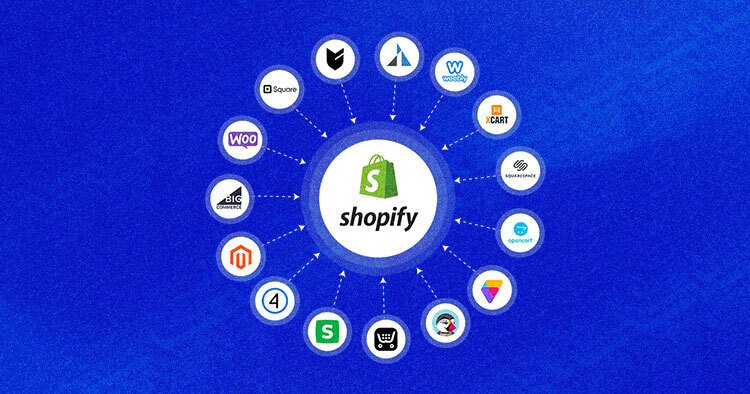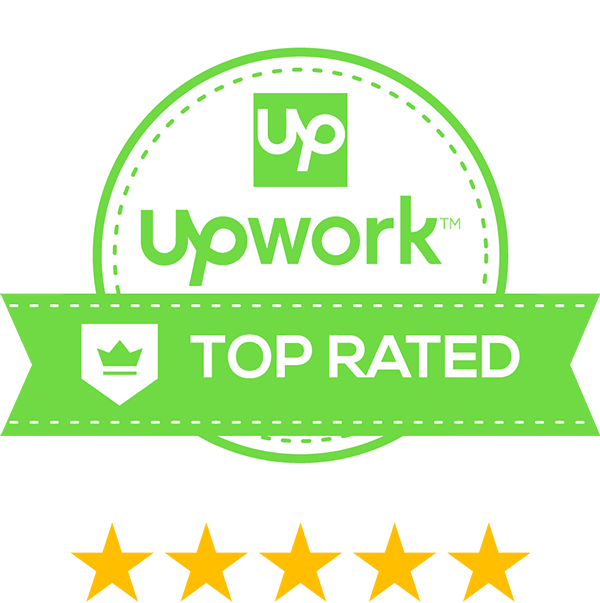In the rapidly growing world of e-commerce, choosing the right platform for your online store is crucial. Shopify has become a household name, but is it the best choice for your business? Let’s compare Shopify with other popular e-commerce platforms like WooCommerce, BigCommerce, and Magento to help you make an informed decision.
Overview of E-Commerce Platforms
Shopify
Shopify is a hosted e-commerce solution known for its ease of use and comprehensive features. It offers a range of pricing plans and is suitable for both beginners and large enterprises.
Pros:
- User-friendly interface.
- Extensive app store.
- 24/7 customer support.
- Scalable plans.
Cons:
- Monthly fees can add up.
- Limited customization unless using Liquid (Shopify’s templating language).
WooCommerce
WooCommerce is an open-source e-commerce plugin for WordPress. It’s highly customizable and ideal for those already familiar with WordPress.
Pros:
- Highly customizable.
- Large community and support.
- No monthly fees (you only pay for hosting and add-ons).
- Extensive themes and plugins.
Cons:
- Requires more technical know-how.
- Additional costs for premium themes and plugins.
- Potential security risks if not properly managed.
BigCommerce
BigCommerce is a hosted e-commerce solution like Shopify but offers more built-in features.
Pros:
- No transaction fees on any plan.
- Excellent SEO features.
- Extensive built-in tools.
- Highly scalable.
Cons:
- Limited themes compared to Shopify.
- Learning curve for advanced features.
- Pricing tiers based on annual sales volume.
Magento
Magento is a powerful open-source platform known for its flexibility and scalability. It’s best suited for larger businesses with complex needs.
Pros:
- Highly customizable.
- Robust feature set.
- Strong community support.
- Suitable for large catalogs and high traffic.
Cons:
- Requires significant technical expertise.
- Higher hosting costs.
- Development can be expensive.
Comparing Key Features
Ease of Use
Shopify: Known for its user-friendly interface, Shopify makes setting up a store straightforward with its drag-and-drop builder and pre-built themes.
WooCommerce: Requires familiarity with WordPress. While setting up WooCommerce is not overly complex, managing updates and security requires more attention.
BigCommerce: Offers a balance between ease of use and advanced features, though some users find the interface less intuitive than Shopify’s.
Magento: The most complex platform, Magento requires significant technical expertise to set up and manage, making it less suitable for beginners.
Customization and Flexibility
Shopify: Provides customization through themes and the Liquid templating language. The app store adds functionality but can increase costs.
WooCommerce: Extremely flexible due to its open-source nature. You can customize nearly every aspect if you have the technical skills.
BigCommerce: Offers extensive built-in features and allows for customization, but with fewer theme options than Shopify or WooCommerce.
Magento: Offers unparalleled customization and flexibility, making it ideal for complex e-commerce needs.
Cost
Shopify: Starts at $39/month, with higher tiers offering more features. Additional costs for apps and themes.
WooCommerce: Free core plugin, but costs accrue from hosting, themes, and paid plugins.
BigCommerce: Starts at $39/month, with pricing tied to annual sales volume. No transaction fees.
Magento: Community Edition is free, but development, hosting, and extensions can be costly. Magento Commerce (the paid version) can be very expensive.
SEO and Marketing
Shopify: Strong SEO capabilities and a variety of marketing tools and integrations.
WooCommerce: SEO depends largely on the hosting and WordPress setup. Offers extensive marketing plugins.
BigCommerce: Excellent SEO features and built-in marketing tools.
Magento: Highly customizable SEO features but requires knowledge to optimize effectively.
Choosing the Right Platform for Your Business
When to Choose Shopify
- You value ease of use: Shopify’s intuitive interface and customer support make it a great choice for beginners.
- You want a hosted solution: Shopify handles hosting, security, and updates.
- You need scalability: Shopify can grow with your business, accommodating everything from small startups to large enterprises.
When to Choose WooCommerce
- You already use WordPress: WooCommerce integrates seamlessly with WordPress, leveraging its ecosystem.
- You want full control: With WooCommerce, you can customize your store extensively.
- You’re budget-conscious: While initial setup might be costlier, WooCommerce can be more economical in the long run.
When to Choose BigCommerce
- You want built-in features: BigCommerce offers robust tools out of the box, reducing the need for third-party apps.
- You need scalability without transaction fees: BigCommerce’s no transaction fee policy is beneficial as your sales grow.
- You have complex needs: With extensive built-in features, BigCommerce suits businesses with complex operational requirements.
When to Choose Magento
- You have technical resources: Magento is best for businesses with development expertise or the budget to hire it.
- You need extensive customization: If your store requires highly specialized features, Magento is the most flexible option.
- You’re running a large operation: Magento handles large catalogs and high traffic well, making it ideal for big businesses.
Conclusion:
If you’re considering Shopify for your business website, CODE CORNERS can help. Our team of experienced developers can create a customized website that meets your unique needs and goals. Contact us today for a free consultation!


